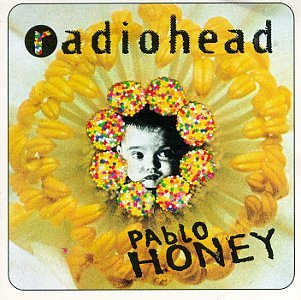
“Pablo Honey” Was Radiohead's Debut Album. Issued In 1993, The Album Was Named After A Popular Prank Call By The Jerky Boys (This Prank Call Is Sampled On The Song “How Do You”).
“Pablo Honey” was Radiohead’s debut album. It was issued in 1993, and I think you more or less know the story: its leadoff single (“Creep”, a marvelous exploration of self-hatred) was blacklisted for being just too depressing. Yet, by a bizarre twist of fate the song began being played in Israel. Then, some import copies found their way into San Francisco. From there, nothing would stop the five friends from Oxfordshire, and England had to listen to what Yorke and his cohorts were screaming at the top of their voices.
Because “Pablo Honey” was the closest the band came to grunge. The material on this disc has serious difficulty sitting next to the songs from just any other Radiohead album. For example, Parlophone’s single disc compilation (released in 2008) included only the ineluctable “Creep”. And the enhanced two-CD edition had “You” and “Anyone Can Play Guitar” tucked near the end of the second disc, as if the songs had been added hastily to the tracklist when the compilers realized the band’s debut had been absolutely neglected.
The truth is that there is nothing wrong with “Pablo Honey”… leaving aside that it is a “conventional” album from a band that was to become renowned from its unwavering experimentation and inventiveness. Radiohead was to sound like nobody else on the industry. Yet, on “Pablo Honey” they did bring to mind other acts.
Of course, Nirvana was the first band one made an association with. Radiohead was actually dubbed “the British Nirvana” once “Pablo Honey” hit the high streets. And they were also mocked as “Nirvalite”, which might go into explaining why the band felt ill at ease about performing songs from their debut album live on later tours. Even the successful “Creep” was given a wide berth, much to the chagrin of audiences that (along with “Karma Police”) invariably thought of that song when the name of the band was mentioned.
Echoes of The Smiths, The Cure and U2 were also evident throughout. “Anyone Can Play Guitar” had it all, with an anthemic, double-time chorus and its microcosmic approach to success. Continue reading

